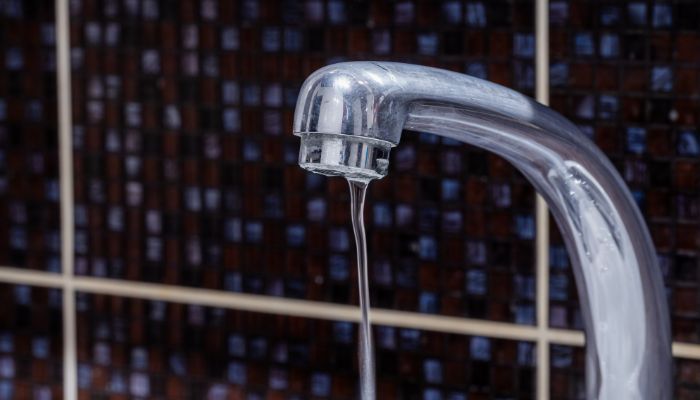Replacing a Bathroom Faucet: DIY Guide
One of the most common upgrades of your bathroom is the faucet change. Whether it is old, leaking, or you just want to give your bathroom a new look, replacing bathroom faucet will give your space a fresh new perspective. You can opt for DIY methods if you have the know-how and the tools required, or you can call a professional plumber to do it for you.
Whatever you decide, we will get you through the whole process from the start to the last part of how to replace bathroom faucet.
When Is The Right Time to Replace Bathroom Faucet
The condition, performance, and appearance all play a role in deciding when to replace bathroom faucet. In general, it may be time for a replacement if your faucet shows evidence of wear and tear, such as frequent leaks, corroded surfaces, or loose handles that can’t be fixed. Pay attention to the sounds it makes because they indicate a blockage or a crack in the pipeline.
Age should also be taken into account; if your faucet is over fifteen years old and beginning to deteriorate, you should definitely replace it. A more contemporary, water-efficient one will improve your bathroom’s aesthetic and performance while conserving water and lowering utility costs.
Ultimately, changing your bathroom faucet at the appropriate time guarantees a reviving update to your bathroom area and averts any damage or difficulty brought on by a failing fixture. This gives you a great opportunity to change to a new faucet that better suits your taste if the design no longer matches the aesthetics of your home or if you’re remodeling the bathroom.
Let’s move on to the detailed instructions on how to replace bathroom faucet!
How to Replace Bathroom Faucet: A Step-By-Step Guide
For some, it may be a cakewalk, but if you are doing it for the first time, this is your step-by-step guide on how to replace a bathroom faucet correctly. Follow us as we guide you in your journey to becoming your own plumber in the following steps:
Gather The Equipment Needed
As a first step, you should gather everything you need in terms of tools and materials. You’ll need a screwdriver, an adjustable wrench, a basin wrench, plumber’s tape, silicone caulk, and a new bathroom faucet kit that matches the mounting holes and style of your sink.
If you don’t have the equipment or necessary knowledge, don’t worry; you can always call an expert to help you replace the bathroom faucet.
Stop the Water Supply
The water supply to your bathroom sink should be turned off. Look under the sink to find the shut-off valves and close them. They often get jammed because of corrosion or other types of residue and can be challenging to close fully. In that case, you should stop the main water supply, but make sure you prepare the whole family for that.
Clear The Surface Of The Sink
Next, you should clear your workspace before installing the new faucet. You can use a mild detergent to clean the sink and ensure there are no obstacles to properly mounting the faucet.
After removing the old faucet, you should also deep-clean the sink surface to get rid of any leftover material and old caulking. A clean sink will make it easier for you to replace bathroom faucet.
Unplug The Faucet
To remove the old faucet safely, take away anything from the area surrounding the sink. Remove the mounting bolts and supply lines from the faucet using a screwdriver and an adjustable wrench. Lift the faucet with caution after loosening the nuts and disconnecting the supply lines. Put some towels or a bucket under the sink to prevent any leakage when doing the removal.
Attach the New Faucet
For installation, adhere to the manufacturer’s instructions that came with your new faucet set, and make sure you have all the necessary bathroom faucet replacement parts. The faucet tails are typically inserted into the mounting holes from the top of the sink after the rubber gasket or seal has been placed over them. Utilizing the supplied mounting bolts, fix the faucet in place from below.
Connect the Hot and Cold Supply Lines
Connect the hot and cold water shut-off valves under the sink to the new supply lines. To properly tighten the connections, use the adjustable wrench without overtightening them to avoid damaging the supply lines.
Plumber’s Tape Application
Before attaching the faucet handles and spout, seal all threaded areas with a plumber’s tape to ensure a watertight fit. This way, you will avoid leakage at the connectors.
Fix The Handles And Spout
Follow the manufacturer’s directions when attaching the faucet handles and spout securely to the faucet base. Any difficult-to-reach bolts can be tightened with a basin wrench.
Check For Potential Leaks
Once everything is in place, restore the water supply and see if there are any leaks. If you discover any, you can stop them by slightly tightening the connectors. If the leakage persists and you’re unsure why, you should look for a plumbing service to inspect the faucet.
Put Silicone Caulk in Place
Finally, use a little bead of silicone caulk to seal up the area where the faucet base meets the sink. This will give your new faucet a polished appearance and create another waterproof seal.
You’ve done it! Your bathroom looks clean and modern now that you’ve successfully replaced the faucet. Remember, don’t hesitate to contact a qualified plumber to ask for faucet installation advice and inspection or run into problems replacing bathroom faucets. Your new faucet will be a useful and fashionable focal point in your bathroom for years to come.
Cost to Replace Bathroom Faucet
The cost to replace bathroom faucet is determined by whether you are hiring a professional or replacing it yourself. Certain brands or faucet features can cost between $50 and $300, which may prompt you to call a pro. Additional costs include $20 to $50 on plumber’s tape, caulk, and other supplies you don’t already have or may not even need in the future.
However, you won’t need any of that when calling a professional plumber since everything is included in the service. Whether an easy replacement or a more demanding one, professional installation can cost anywhere from $150 to $400.
Even though doing faucet replacement yourself might reduce labor costs, it still takes time, effort, and a certain amount of knowledge. By hiring a pro, you can be confident that replacing the bathroom faucet will be done smoothly and correctly, and the company will cover any subsequent issues. In any case, a well-designed and aesthetically pleasing bathroom faucet will improve the usefulness and beauty of your bathroom whether you decide to DIY or hire a pro.
Concluding Remarks on Replacing Bathroom Faucets
Whether you desire to modernize an old look, stop leaks, or add a touch of a fresh, contemporary look to your bathroom, replacing the bathroom faucet can make a significant difference. While doing it yourself may save you money, it also requires a lot of time and specific skills that might present a problem. A professional team such as Cummings Plumbing can ensure that a faucet installation is seamless and done correctly.
Whatever you decide, keep in mind your unique requirements and preferences to make long-term enjoyment in your bathroom, and don’t hesitate to call a professional to do it for you properly.
FAQ
What is the lifespan of a bathroom faucet?
The average time of functionality of a bathroom faucet can vary based on its quality, usage, and upkeep. If it’s well maintained, it can last between ten and twenty years. However, cheaper or cheaply manufactured faucets can’t last as long and might need to be replaced more frequently.
Is it better to repair or replace a faucet?
The degree of the damage and the faucet’s general condition determine whether to repair or replace it. Simple fixes like changing washers or cartridges can frequently solve minor problems like a dripping or leaking faucet, and some bathroom faucet replacement parts can cost you less than buying a new one. However, replacing the faucet is typically more cost-effective and practical if it is considerably rusted, obsolete, or damaged.
What is the average cost to replace a bathroom faucet?
It all depends on the design, manufacturer, and method of installation. The cost to replace bathroom faucet depends on whether you’re doing it yourself or a pro. Prices range from $50 to $300 if you are the one to replace it, while hiring a professional plumber can cost anywhere between $150 and $400.
Do new faucets come with drains?
It depends on the faucet supplier and the model. A matching drain assembly is included in a complete set alongside the new faucets by some brands. The drain may, however, be sold separately from some faucets, giving you the option to select a drain style that matches the design of your bathroom. It is crucial to determine whether a new faucet comes with a drain or if you have to buy the drain separately.









